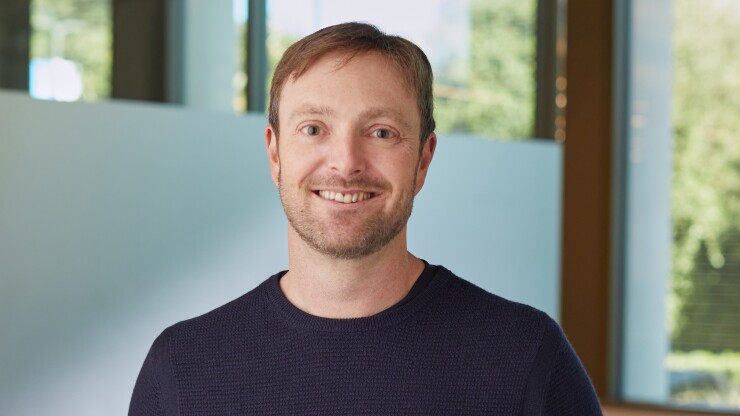Want unlimited access to top ideas and insights?

PayPal may allocate its resources in fewer areas as it attempts to reverse nearly two years of stock declines while it faces an uncertain economic environment.
"I'm walking in with my eyes wide open," said Alex Chriss during PayPal's earnings call Wednesday afternoon. "There are challenges to tackle and we have work to do." Chriss became
"Our cost base is too high and it is slowing us down," Chriss said. "The company's focus has not been clear."
For the quarter ending September 30, PayPal reported revenue of $7.4 billion, up 9% from about $6.8 billion the prior year. That beat analysts' projections of $7.38 billion, according to Yahoo Finance, which cited data from LSEG. Earnings per share were $1.30, better than analysts' projections of $1.23. PayPal projected profit for the full year to be $4.98 per share, up from PayPal's earlier projection of $4.95 and better than analysts' projections of $4.92.
Total payments volume was $387 billion in the quarter, up 13% from the prior year's $383 billion, and better than analysts' projections of $378 billion. PayPal attributed the performance to resilient consumer spending, which has held strong despite concerns of a recession and high (but falling) inflation.
PayPal's new leadership faces old problems
Chriss, who previously ran Intuit's small business and self-employed unit, takes over the payments company as its stock has fallen nearly 30% this year. PayPal is
To respond, PayPal has
"PayPal is a global force in payments and is well-positioned in acceptance, money movement, merchant finance, and consumer payments," said Brian Riley, co-head of payments and director of credit and risk advisory at Javelin Strategy & Research, adding that in the current business cycle, the company needs to protect its accounts, focus on the P2P market and extract additional earnings from its existing product line.
"PayPal still has a solid place in payments, but faces stiff competition, and needs to engineer their overall business strategy," Riley said.
A plan for a leaner PayPal
PayPal recently sold
Chriss has spent his first month meeting with customers, partners and investors. The result is a plan that will change how PayPal develops new products for consumers, small businesses and enterprise clients. PayPal will also change how it reports its results to investors, and Chriss said most of these changes will be detailed at the company's next earnings call in February.
PayPal will "refocus" its consumer product and will soon launch a new "end to end" experience with the checkout at the center. "This will bring value to each purchase," Chriss said.
In the consumer segment, for example, PayPal will use its database of merchant inventory, payments and reward data and AI to power a shopping recommendation engine and incentive marketing. In its business segment, PayPal will expedite the development of new features for PayPal Complete Payments, a product that offers payments and other merchant services for online marketplaces and other digital merchants. PayPal is using consumer data to improve the autofilling of checkout forms.
Generative AI, or a form of AI that can produce original content, will play a major role, Chriss said. PayPal can use its network of consumers and merchants to analyze data for spending habits, inventory and other behaviors as part of product development.
"We can use generative AI in a responsible way to bring consumers and merchants together," Chriss said.
In a research note, analysts at William Blair said PayPal's long-term opportunities remain substantial as the company has evolved from a traditional checkout button to a robust platform of end-to-end solutions for consumers and merchants.
"While early, the company appears keenly focused on leveraging its vast amount of data to improve operational efficiency and we are encouraged by management's narrowed focus on profitable growth," William Blair's analysts said, noting PayPal has more than 428 million active users on the platform including 35 million merchants, and has $1.5 trillion of annual payment volume.
PayPal is adding other new executives beyond Chriss. On Wednesday it announced
"Jamie is an accomplished CFO and business executive who has worked across many industries and guided both public and private companies through dynamic environments and meaningful transformation during her impressive 33-year career," Chriss said. PayPal will hire additional senior executives to bolster its talent in the coming months, Chriss said.
"This is a growth company with great prospects," Chriss said. "We must execute better with higher velocity."






